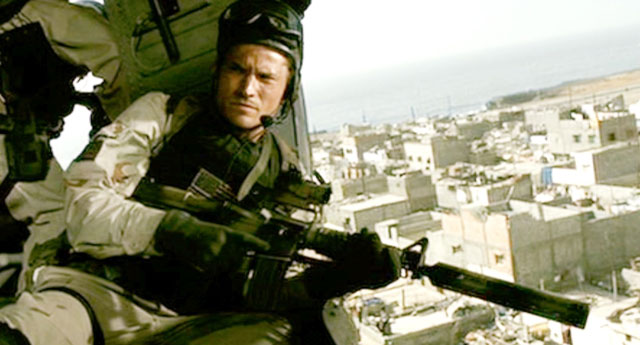
Mogadishu, Somalia | AFP | An American soldier has been killed in a night-time raid in Somalia, in what is believed to be the first US military death in combat there since the infamous events of “Black Hawk Down” 24 years ago.
The death occurred three weeks after the US announced the deployment of “a few dozen troops” to Somalia, tasked with training and equipping Somalian troops to fight Shabaab militants.
“One US service member was killed during an operation against Al-Shabaab near Barii, Somalia, approximately 40 miles (65 kilometers) west of Mogadishu,” during the raid on Thursday, the United States’ Africa Command (AFRICOM) said in a statement.
Two other US soldiers were wounded in the operation against Shabaab militants, AFRICOM spokeswoman Robyn Mack told AFP.
US special forces have been deployed in Somalia for years. Drone and missile strikes have also been used against Shabaab commanders and footsoldiers.
Mack said it appeared to be the first time the US military has suffered a battlefield loss in Somalia since 1993, when 18 American servicemen died in what is called the Battle of Mogadishu.
That battle, portrayed in the 2002 movie “Black Hawk Down,” involved an ill-fated US attempt to snatch militia leaders in Somalia’s capital. Two Black Hawk helicopters were shot down, sparking a chaotic, under-fire rescue operation that resulted in hundreds of deaths, including many civilians and the US personnel.
“We do not believe there has been a case where a US service member has been killed in combat action in Somalia since the incident there in 1993,” Mack told AFP.
– Raid ‘thwarted’ –
AFRICOM said the US forces in the raid were on an “advise-and-assist mission alongside members of the Somali National Army.”
A local resident near the scene, Moalim Muhidin, said two helicopters were involved in the raid, firing missiles before landing to unload soldiers, after which a heavy firefight broke out.
Abdirisak Farah, a Somali military officer, told AFP there were casualties on both sides, with six Shabaab fighters killed.
In a statement, the Shabaab said it had repelled the attack and claimed credit for killing the US soldier.
“An air landing operation by US Special Forces was thwarted in Lower Shabelle province and a number of their soldiers were killed and wounded,” the group said, according to the SITE Intelligence Group, which tracks jihadist threats.
A Pentagon spokesman, Navy Captain Jeff Davis, described the raid as a “Somali mission” against a Shabaab compound housing individuals linked to attacks on Somali and US forces.
He said the US team had been “maintaining a distance back” from the SNA troops when it came under fire.
Davis did not identify the US personnel in the team. But he said they were operating “under the same authorities” in place since 2013, suggesting they were US special operations commandos.
“We do have an enduring presence of about 50 US special operations that work in Somalia doing this advise-and-assist mission to the SNA,” he said.
– ‘Threat to Americans’ –
Since taking office, President Donald Trump has signed a directive loosening the US military’s rules of engagement in Somalia.
Under the boosted US presence in the African country, dozens of regular troops from the 101st Airborne Division have been deployed.
For the last decade the Shabaab has been fighting to overthrow the internationally backed government of Somalia.
The group attacks government, military and civilian targets in the capital and elsewhere, often deploying suicide bombers, and has overrun several military outposts, massacring soldiers from the 22,000-member African Union Mission in Somalia, known as AMISOM.
It has also carried out attacks abroad, including the 2010 World Cup bombing in Kampala, Uganda, and the 2013 Westgate mall and 2015 Garissa University attacks, both in Kenya.
In its statement AFRICOM said the Shabaab “presents a threat to Americans and American interests” by radicalising and recruiting terrorists and fighters in the United States, and by inspiring attacks “against Americans, our allies and our interests around the world, including here at home,” it said.
 The Independent Uganda: You get the Truth we Pay the Price
The Independent Uganda: You get the Truth we Pay the Price





